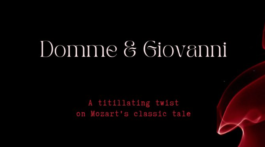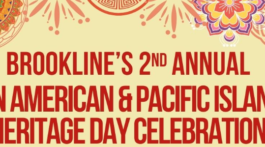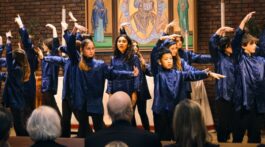October the 18th through the 24th is Brookline Sister City week, a week-long celebration of the now twenty-eight year cultural exchange project known as the Brookline-Quzelguaque Sister City Project (BQSCP).
The Project began after a Brookline resident, Maxine Shaw, then a teacher in a one-room schoolhouse in Quzelguaque, wrote home about the poor conditions in the schools. She made appeals to the Brookline community for help, and over the course of the two years she lived in Quzelguaque (1985-87), many residents responded with contributions addressing those bleak conditions and, upon her return to Brookline, the town passed a resolution formally establishing Quzelguaque as Brookline’s sister city.
“Our relationship with Quzelguaque is very much a two-way street,” says Richard Segan, President of the board of directors of the Brookline Sister City Project. “It’s a partnership. We work with them, they work with us. It’s an exchange of ideas. This is the fabric of the sister city relationship.”
Earlier this year, the Project dispatched a team of physicians, board members, and graduate students to conduct a follow-up study on those suffering from chronic kidney disease of unknown origin (CKDu) which, according to the initial study in 2008, ails approximately 20 percent of men over the age of 18 in Quzelguaque. On October 19th at 7 P.M, the Coolidge Corner Theater will put on a scientific presentation lead by Professor Dan Brooks of Boston University’s School of Public Health addressing the epidemic and their findings.
Several other events will be held during the week including a dance and music program featuring “La Piñata,” a youth dance troupe, which kicks off the week on the 18th at the Coolidge Corner Library (31 Pleasant Street).
Perhaps most notably, the Project will host a public forum moderated by former governor Michael Dukakis with Stephen Kinzer, former New York Times bureau chief and author, now a senior fellow at the Watson Institute for International studies at Brown University. Kinzer will be the keynote speaker and will be sharing his experience as a foreign correspondent in Managua from the late 70s and 80s, a decisive moment in Nicaragua’s political history.
Kinzer arrived in Managua in 1976, just three years before the Sandinista National Liberation Front (FSLN) toppled the Somoza dictatorship, an event which precipitated the infamous Contra War orchestrated by the Reagan administration. Kinzer will be sharing his book, Blood of Brothers, based on his first-hand experience as Bureau Chief during Nicaragua’s bloodiest years.
The book is a masterful portrait of a country devastated by war, weaving together authentic anecdotes and rigorous scholarship to produce a compelling narrative. But despite Nicaragua’s contentious history, Kinzer asserts, many of the small poverty-stricken villages like Quzelguqaue are home to some of the most spiritually alive communities.
“Nicaragua is very spiritually rich,” Kinzer says. “It’s a poor country, by most standards it’s the second poorest in the Western hemisphere behind Haiti. Nonetheless people are very positive. They have big hearts and big souls. I learned so much about what it’s like to be a human being from the years I spent with Nicaraguans.”
Kinzer praises cultural exchange organizations like the Sister City Project that seek to link many unique and diverse communities to one another in order to learn about each other.
“As Americans we would benefit from becoming more of a learning nation,” Kinzer says. “Realizing we have a lot to learn from other countries is an important step in becoming a stronger people, particularly given that we have such a tortured history with many countries as we have with Nicaragua.”
U.S intervention in Nicaragua began as early as 1909 when it overthrew President Zelaya after it was decided the regime was disrupting American business by reducing the scope of concessions made to U.S lumber and mining companies. Since then, and given direct U.S involvement in the Contra War, our record with the Nicaraguan people has needed repair. Kinzer believes the Sister City Project is one way relations can be restored.
“Rather than wait for some cosmic reconciliation or some government-to-government connection, Brookline, like other communities, is focusing on a real project that has direct influence on individual lives, and I think this is a wonderful thing. It builds a bridge between Brookline and Nicaragua that can improve lives on both ends of the bridge.”
The Project has since supplied $140,000 worth of medical equipment to Quzelguaque, and, among other things, has constructed a town library, an elementary school, and a community health center.
Prior to the public forum, a fundraiser will be held at the Teen Center from 5:30 until 7 P.M, and a Spanish presentation given from 7 until 7:30 P.M about the Sister City Project.
~ Tanner Stening










